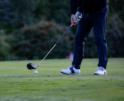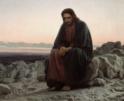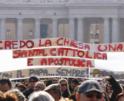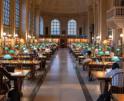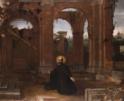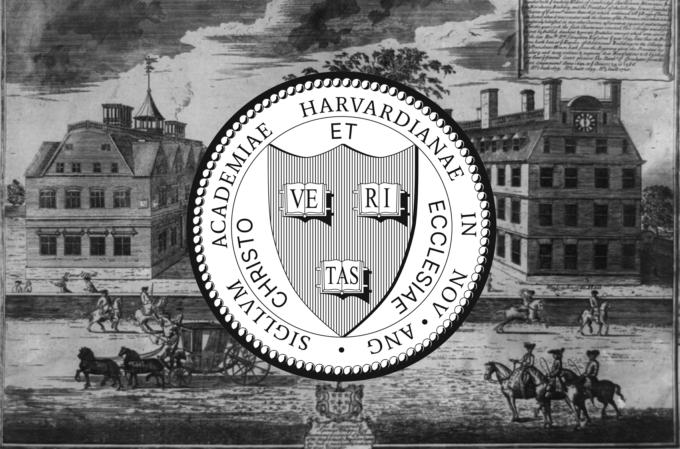
Spirituality
... Harvard's early motto had been "Veritas, Christo et Ecclesiae" -- "Truth, for Christ and the Church." How could this be, we wondered? How could this originally Christian university have turned away from the truth of Christ?
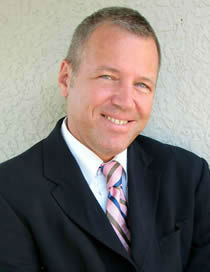
Pakaluk
I smile and look back with gentle pity when I think of myself as a newly converted Christian at Harvard, huddled together on Friday evenings in Phillips Brooks House with other members of the InterVarsity Christian Fellowship (IVCF), singing hymns and praying aloud, regarding ourselves as if in the belly of the beast, or at least in the catacombs. Imagine our shock when we discovered, or it was re-discovered, that Harvard's early motto had been "Veritas, Christo et Ecclesiae" -- "Truth, for Christ and the Church." How could this be, we wondered? How could this originally Christian university have turned away from the truth of Christ? We imagined some gradual process of wandering away, an apostasy bit-by-bit. Hadn't other institutions lost their Christian spirit before our eyes? Maybe by our zeal we could help Harvard find its way back. Thus, we supposed in our innocence.
If I could speak now to myself back then, I would say, "Michael, that is not how it happened. There was no gradual falling away but a deliberate break, a shift. It was as if that old college had been destroyed, and a new one took its place. Moreover, the time can be accurately assayed."
Ponder just these facts. In 1868, the president of Harvard was a gentle botanist, Thomas Hill, who, after he retired, became the minister of a small Unitarian parish in Maine. In retirement, he wrote a book, "The True Order of Studies," where he argued that the pinnacle of a college education should be the study of Natural Theology and Evidences of Christianity. And he was not an odd case: his predecessors, almost without exception, were clerics. They were scholars, too, trained in Greek and Latin.
Move forward about 60 years, a very brief time in the life of an institution. Now the president, James Bryant Conant, is a chemist who had worked for the Army in World War I developing poison gasses. He rises in influence, and, during World War II -- still as president of Harvard -- he reports to the military while he coordinates the research of the scientists working to develop the atom bomb. He's even a distinguished guest, invited to witness the Trinity test blast.
As I said, ponder these facts. How does the president of Harvard change from being a retiring botanist-scholar, to being a powerbroker, busy in assisting a global power manufacture weapons of mass destruction? How did Harvard change from being a traditional college in the mold of the Oxford and Cambridge colleges, in the service of a church, with a fixed classical curriculum, and tutors who believed their duty was to form the character of their charges -- to being a "research university" with thousands of electives, in the service of big industry, big science, and the U.S. military?
I am not describing anything so simple as a gradual apostasy but rather the re-founding of the university on a completely new basis -- in which a relationship to Christ or a church looks untenable. And since Harvard was the leader among American universities, it gradually pulled all the others along with it -- Michigan first, then Princeton and Yale -- joined by the new universities of the late 19th century, such as Stanford and Johns Hopkins, and the land-grant universities besides. What happened was the most radical and rapid re-invention of an institution in all of human history.
It is common to ascribe the exaggerated individualism in our society, and the erosion of traditional institutions, to the operation of "the market," but in my view, given the importance of education, this change in the university is a much more likely suspect.
What happened in the interval, you may wonder? The Congregationalist and Unitarian movements were spent. The rising industrial and business class found dead languages a waste of time. Nothing could shore up the old way of doing things. If you want to know the immediate cause, it was the 40-year presidency of Charles W. Eliot. Eliot got the job in 1869 after publishing visionary essays on "The New Education" in the Atlantic Monthly. He was a chemist at the newly founded M.I.T. It was impossible, he said, for an institution to be both scholarly and "practical." He wanted Harvard to change into a "practical" institution, where the new sciences were the primary object of study. He even attempted repeatedly to have Harvard acquire M.I.T., which would have sped up the process. Making all courses elective was his means, which meant the demise of classical education, the faculty's dissociation from teaching, and the proliferation of hyper-specialized studies.
My newly converted self back then knew nothing of John Henry Newman. And so, I would tell him: "Michael, study Newman. Surely it is providential that he gave his lectures on the ideal of a university in 1854, just when the transformation I am describing was starting. Admittedly, Eliot's vision so far has won the day, while Newman was a failure, even in his one attempt to found a university. But the better conception and ideal, with God's grace, will prevail over time. Jesus was a 'failure' too: such is Christianity. Do not be bedazzled by the 'prestigious' universities. They cannot set the standard for Christians. 'Stand by the roads, seek the ancient paths, where the good way is, and walk in it,' wrote the prophet Jeremiah, '... and you will find rest for your souls'" (6:16).
- Michael Pakaluk, an Aristotle scholar and Ordinarius of the Pontifical Academy of St. Thomas Aquinas, is a professor in the Busch School of Business at the Catholic University of America. He lives in Hyattsville, MD, with his wife Catherine, also a professor at the Busch School, and their eight children. His latest book is "Mary's Voice in the Gospel of John." You may follow him on X (twitter) @michael_pakaluk.
Recent articles in the Spirituality section
-
Masters week foreknowledgeMichael Pakaluk
-
Why is Lent 40 days?Michael Pakaluk
-
The eloquent ambiguity of 'I believe'Bishop Robert Barron
-
You don't get what you pay forMichael Pakaluk
-
The witness of a consecrated lifeBishop Robert Barron

